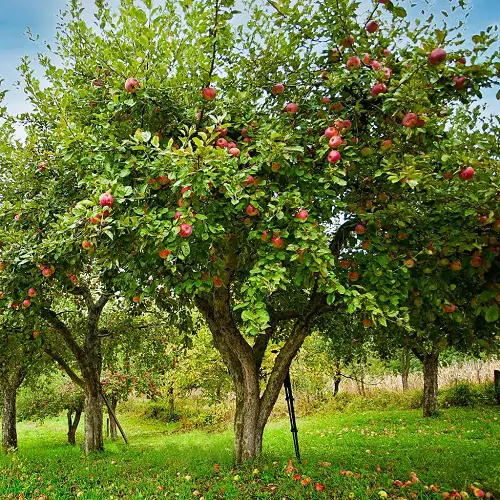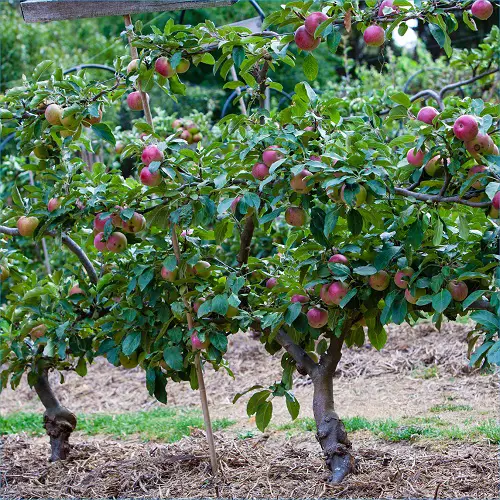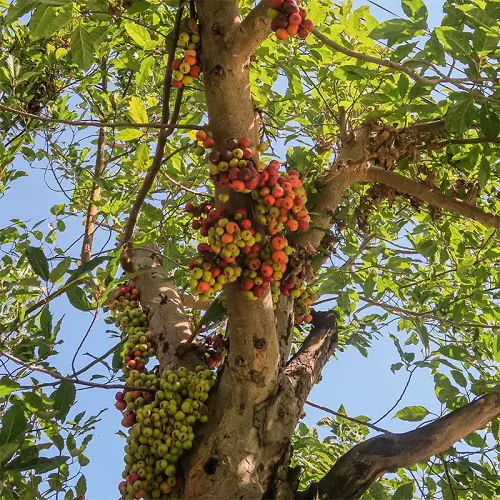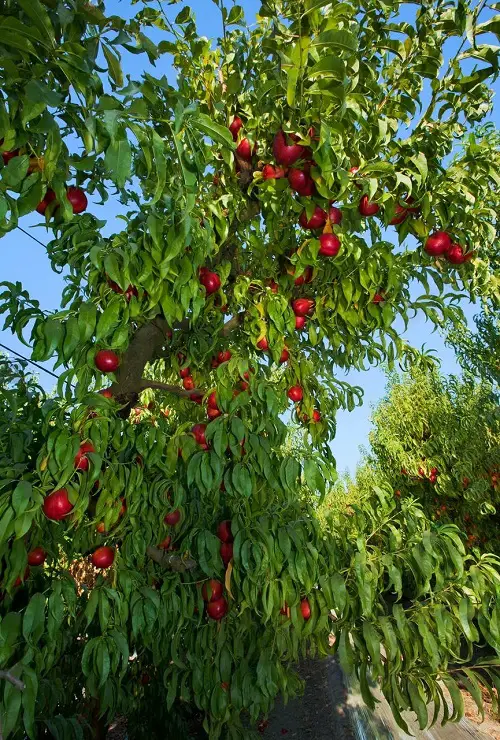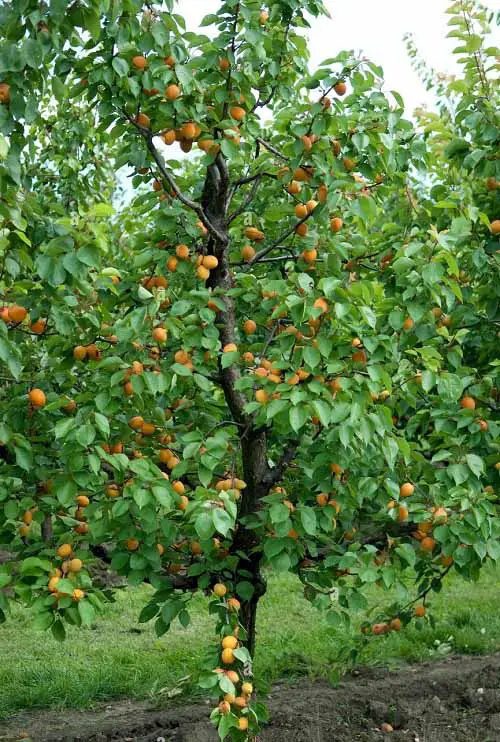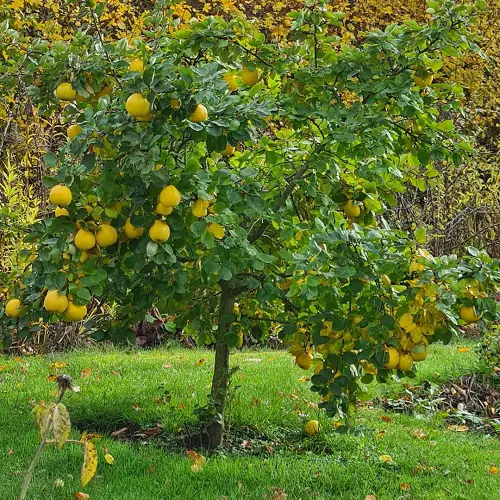Best Zone 7 Fruit Trees – Our expert recommendations will help you grow delicious fruits with ease in your temperate climate.
Zone 7 offers a rich tapestry of fruits that not only thrive but produce juicy ones year after year. Read on to explore the most compatible, low-maintenance, and delicious Zone 7 Fruit Trees for your garden!
What Does USDA Zone 7 Mean?
Temperature Range
- Fahrenheit: The average minimum winter temperature for Zone 7 ranges from 0°F to 10°F.
- Celsius: In Celsius, this translates to approximately -17.8°C to -12.2°C.
Favorable Conditions for Fruit Trees
- Extended Growing Season: Zone 7 offers a relatively long growing season, giving fruit trees ample time to mature and produce fruit.
- Moderate Winters: The moderate winter temperatures allow for a wider variety of fruit trees that can survive the cold months, including those that require some winter chill for bud development.
- Adaptability: The balanced climate means both cold-hardy and subtropical fruit varieties can adapt well.
- Bud Break: Some fruit trees, like apples and cherries, require cold periods to break bud dormancy, making Zone 7 ideal for these types.
- Limited Frost Risk: The risk of late spring frosts is lower, reducing the likelihood of frost damage to buds and flowers.
Best Zone 7 Fruit Trees
1. Apple
Scientific Name: Malus domestica
Apple trees are highly adaptable and can tolerate a range of soil types and weather conditions. In Zone 7, the moderate winters and long growing seasons provide an ideal environment for apple varieties like ‘Fuji’ and ‘Honeycrisp’ to thrive.
2. Peach
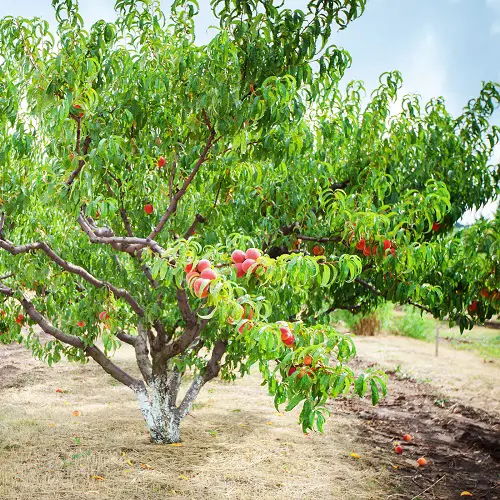
Scientific Name: Prunus persica
Peaches require well-drained soil and ample sunshine, both of which Zone 7 readily provides. The moderate temperatures are ideal for varieties like ‘Redhaven’ and ‘Elberta,’ ensuring good fruit development and flavor.
3. Pear
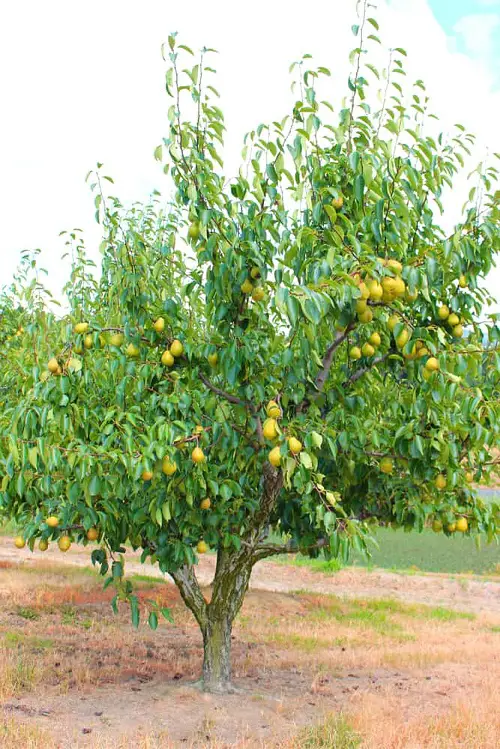
Scientific Name: Pyrus
Pears need winter chill hours but also a warm growing season. Zone 7 balances these requirements, making it a suitable region for pear cultivation. Varieties such as ‘Bartlett’ and ‘Anjou’ do exceptionally well.
4. Plum
Scientific Name: Prunus domestica
Plums can handle slightly alkaline soil and benefit from the moderate temperatures in Zone 7. European plum varieties, in particular, thrive in this climate and produce quality fruit.
5. Cherry
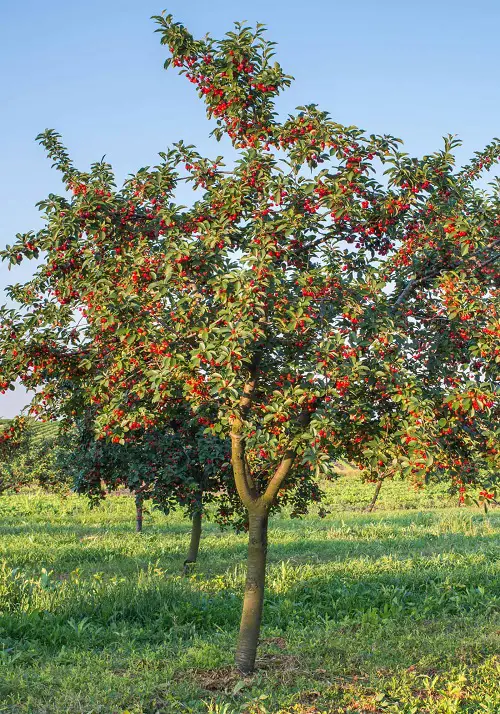
Scientific Name: Prunus avium
Cherries like ‘Bing’ or ‘Rainier’ appreciate the well-drained soil and moderate winters of Zone 7. These conditions contribute to a bountiful harvest of sweet and juicy cherries.
6. Fig
Scientific Name: Ficus carica
Figs are well-suited for warmer climates but can also withstand the occasional frost. Zone 7 offers a climate where fig trees can thrive, with the warmth needed for fruit development and some cold tolerance.
7. Persimmon
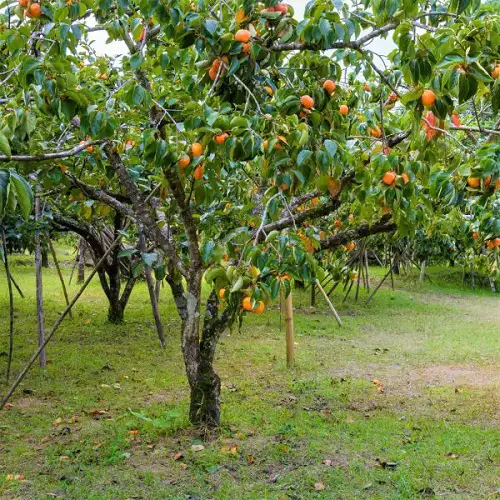
Scientific Name: Diospyros
Both American and Asian persimmons do well in Zone 7 due to the moderate temperatures and extended growing season. This allows for healthy tree growth and the production of sweet, flavorful fruit.
8. Nectarine
Scientific Name: Prunus persica var. nucipersica
Similar to peaches, nectarines favor the soil and climatic conditions of Zone 7. The region’s balanced conditions, with warm summers and mild winters, contribute to successful nectarine cultivation.
9. Apricot
Scientific Name: Prunus armeniaca
Apricots require a chilling period, which the Zone 7 winters provide. Additionally, the long, warm growing season ensures proper fruit development, resulting in delicious apricots.
10. Quince
Scientific Name: Cydonia oblonga
Quince is tolerant of a variety of soil types and appreciates the balanced climatic conditions of Zone 7. The moderate temperatures in the region facilitate its longer growing season, allowing quinces to mature and develop flavor.
11. Jujube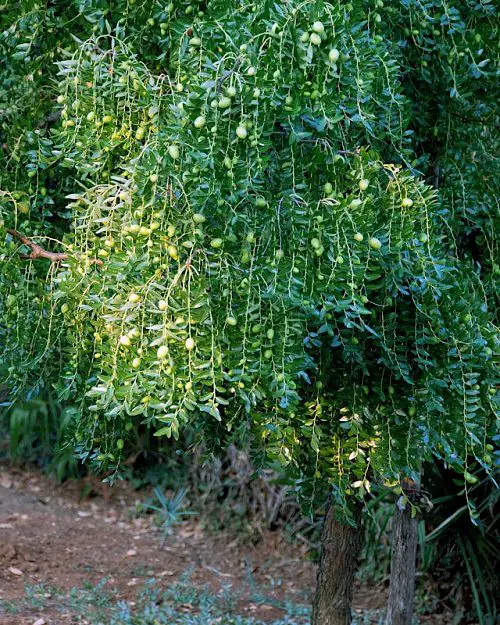
Scientific Name: Ziziphus
Jujube trees are highly adaptable and can tolerate a wide range of temperatures. USDA Zone 7, with its moderate winters and long growing seasons, is quite hospitable to these trees.
12. Cornelian Cherry
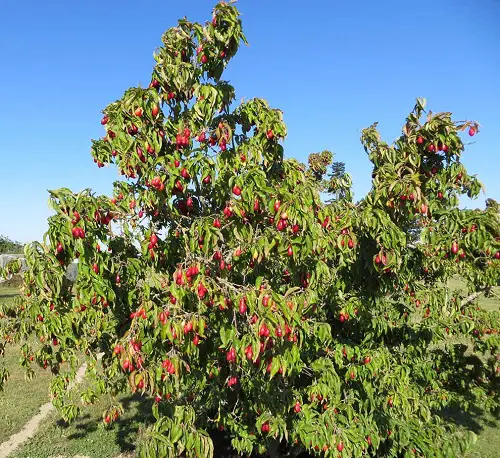
Scientific Name: Cornus mas
Cornelian Cherry trees are highly cold-hardy and can easily survive the cooler temperatures experienced in Zone 7. They also tolerate the hot summers well, making them ideal for this zone.
Zone 7 Fruit Trees – FAQs
1. When is the best time to plant Zone 7 Fruit Trees?
Spring and fall are ideal. Plant in early spring before bud break or in late fall after leaf drop to allow the tree to establish roots before extreme temperatures.
2. How much sunlight do Zone 7 Fruit Trees need?
Fruit trees generally require at least 6-8 hours of full sun daily for optimal growth and fruit production.
3. How should I water my fruit trees?
Deep, infrequent watering is best. Provide about 1 to 1.5 inches of water per week, either through rainfall or manual watering, particularly during dry spells.
4. Do I need to fertilize my Zone 7 Fruit Trees?
Yes, fertilize in early spring before bud break with a balanced fertilizer. Follow the recommended application rates on the product label.
5. How do I protect my fruit trees from winter cold in Zone 7?
Apply a layer of mulch around the base of the tree to insulate the roots. You can also wrap the trunk with tree wrap to prevent sunscald.
Here are 25 Trees With Smooth Gray Bark
6. Should I prune my Zone 7 Fruit Trees?
Pruning is essential for shaping, removing dead or diseased branches, and promoting air circulation. Prune during the dormant season, typically in late winter or early spring.
7. How do I prevent pests and diseases?
Regularly inspect your trees for signs of pests and diseases. Consider using organic or chemical treatments as needed, and practice good sanitation by cleaning up fallen fruit and leaves.
8. When can I expect my Zone 7 Fruit Trees to bear fruit?
The time it takes for fruit trees to bear fruit varies by type and variety. Typically, you can expect to see fruit within 2 to 5 years after planting.
9. Can I grow tropical fruit trees in Zone 7?
While Zone 7 has a moderate climate, it may not be suitable for tropical fruit trees like mangoes or avocados. Stick to cold-hardy varieties or consider container gardening for tropical fruits.


